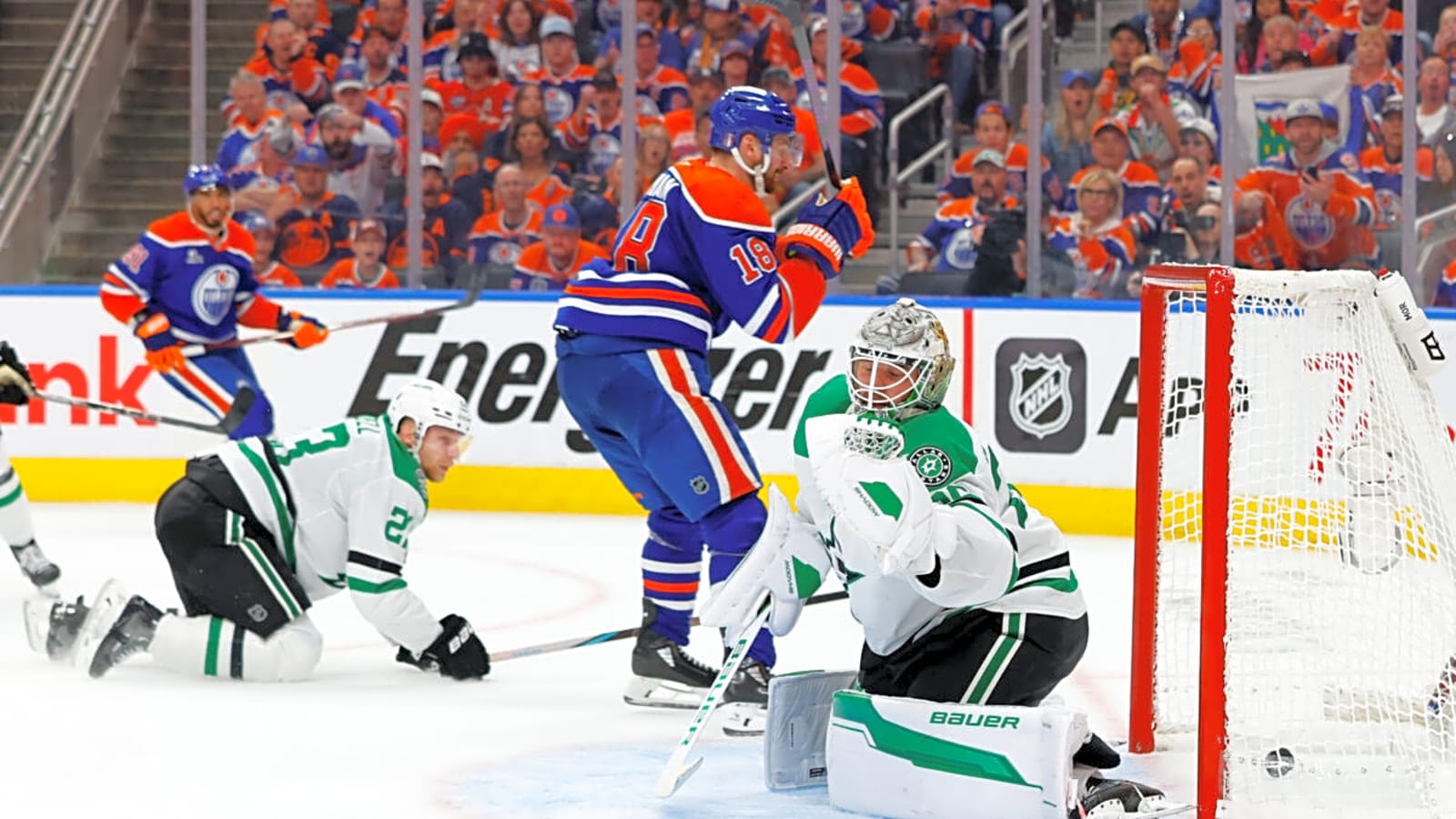
After winning Game 1, the Dallas Stars have gone down 2-1 in the Western Conference Final to the Edmonton Oilers, and have been outscored 9-1 in the last two games, including a 6-1 loss in Game 3 on Sunday afternoon.
It’s hard to put a finger on exactly what’s gone wrong for the Stars. There’s been a little bit of luck on the Edmonton side, but overall, the Oilers have been faster, stronger, and more physical, and it’s shown up on the scoreboard in a big way.
In these playoffs, there has been talk about how fragile the Winnipeg Jets were on the road. Well, the Stars haven’t been much better. After the Oilers got away with a blatant penalty in the first period, they immediately scored two goals, and the Stars never recovered.
Let’s dig a little deeper with two takeaways from the afternoon that was in Alberta.
No-Call in First Period Sinks Stars
In the first two games, the third period of Game 1 was really the only one in which the Stars were the better team, and that was only because they were on the power play for most of it. They may not have been the better team in the opening 20 minutes on Sunday, but it was as even a period as we’ve seen in this series so far. That is, for the first 13 minutes or so.
Evan Bouchard opened the scoring for the Oilers at 14:02. Moments before that, Oilers’ defenseman Brett Kulak was not called for delay of game after clearing the puck over the glass. It was ruled a deflected puck, which, after the replay, it clearly was not. In real time, with bodies blocking the view, it’s understandable that the refs missed it, at least to a point. But they missed it. That is not a debate or an opinion. They missed it, and the Oilers scored almost immediately after. Connor McDavid then scored 26 seconds after that, and the Stars couldn’t recover.
There are penalties in hockey, and in any sport, that can be subjective or in the eye of the beholder. Delay of game in the form of clearing the puck without it being deflected is not one of them. It is black or white, and the refs straight up blew it. Everyone is going to say that’s not why they lost the game. No one wants to give the refs credit for dictating the outcome, including the refs. However, in this case, that 60-second stretch is what put them in a hole that they could not dig out of, and the refs are, in part, responsible for that. This is not a Stars cheerleader piece; that’s just the truth.
However, the way that the Stars got caved in after that sequence has nothing to do with the refs. Dallas has struggled on the road all postseason, and the way that they handled themselves after that missed call is extremely concerning. Both goals were due to defensive lapses, especially McDavid’s on a 3-on-1 rush.
They played better in the second period, outshooting the Oilers 21-8 and killing off a couple of penalties. That all changed when McDavid scored to make it 3-1 at the end of the period. The Oilers dominated the third, and it was nighty night in Edmonton.
What in the World is Happening on the Road?
I touched on this towards the end of Round 2, and after only one game on the road in this series, this topic is as alive as ever. The Stars have not been good on the road, and they are going to have to figure it out, or else they will lose their third straight Western Conference Final. Simple as that.
In seven games outside of Texas, the Stars are 2-5 and have been outscored 28-10. In their last three road games specifically, they’ve been outscored 14-1. Their power play is at 15.8%, and they are giving up 34.1 shots per game. Sure, they outshot the Oilers 34-24 on Sunday, but my point is the same. It hasn’t been good.
If they can’t find a way to win on the road, that 3-0 loss at home in Game 2 is really going to hurt.
More must-reads:
- Bruins name former player as new HC
- Blue Jackets' Sean Monahan receives unexpected visit after winning Masterton Trophy
- The 'NHL Selke Trophy winners' quiz
Breaking News
Trending News
Customize Your Newsletter
 +
+
Get the latest news and rumors, customized to your favorite sports and teams. Emailed daily. Always free!







